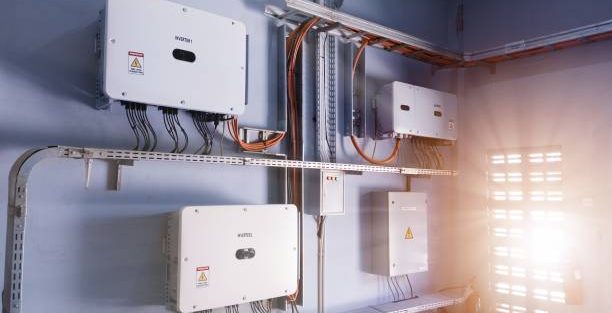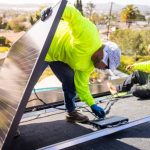As we transition towards a more sustainable energy landscape, solar power often takes center stage. However, there are two unsung heroes in this renewable energy revolution: batteries and inverters. While solar panels collect sunlight and convert it into electricity, batteries and inverters play equally vital roles in ensuring that this energy is usable, reliable, and efficient. Let’s explore why these components are crucial for a sustainable energy future.
Understanding the Basics
Before diving into their importance, let’s clarify what batteries and inverters do:
– Batteries store excess energy generated by solar panels. This stored energy can be used when sunlight isn’t available, such as during the night or on cloudy days.
– Inverters convert the direct current (DC) generated by solar panels into alternating current (AC), which is the form of electricity used in homes and businesses. They also ensure that the system operates efficiently and safely.
The Crucial Roles of Batteries and Inverters
1. Energy Storage: Making Solar Power Reliable
One of the biggest challenges with solar energy is its intermittent nature. The sun doesn’t shine 24/7, and energy demand doesn’t always align with energy production. This is where batteries come in. By storing excess energy produced during sunny days, batteries provide a reliable power source when the sun goes down or when demand spikes. This capability enhances energy independence and ensures that homes and businesses have access to electricity whenever they need it.
2. Enhancing Grid Stability
As more renewable energy sources come online, the stability of the electrical grid becomes a concern. Batteries can help stabilize the grid by providing backup power during outages and balancing supply and demand. When there’s a surplus of energy, batteries can store it for later use, preventing grid overloads. Conversely, during high demand periods, batteries can discharge stored energy to help meet that demand, ensuring a more resilient energy system.
3. Optimizing Energy Use
Inverters play a crucial role in optimizing energy use. They monitor the energy produced by solar panels and determine the best way to use it—whether to power your home, charge the batteries, or send excess energy back to the grid. Smart inverters can even communicate with the grid to help manage energy flow, providing valuable data that enhances overall system performance.
4. Reducing Energy Costs
By investing in battery storage systems, homeowners and businesses can reduce their reliance on the grid and lower their energy bills. During peak hours when electricity prices are high, stored energy can be used instead of drawing from the grid, leading to significant savings. Over time, this can lead to a strong return on investment, making renewable energy solutions even more attractive.
Looking to the Future
As the world moves toward a more sustainable energy future, the roles of batteries and inverters will only become more significant. Innovations in battery technology, such as lithium-ion and flow batteries, are making energy storage more efficient and affordable. Similarly, advancements in inverter technology are improving energy management systems and enabling smarter energy solutions.
While solar panels are undeniably important, batteries and inverters are just as crucial for creating a sustainable energy future. Together, they form a cohesive system that not only harnesses solar power effectively but also ensures that this energy is reliable, efficient, and accessible. By understanding and investing in these technologies, we can pave the way for a greener, more resilient energy landscape.





